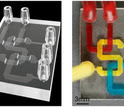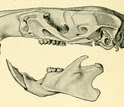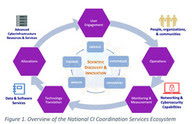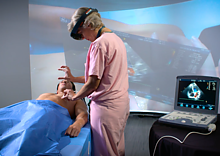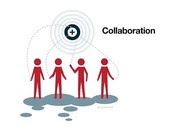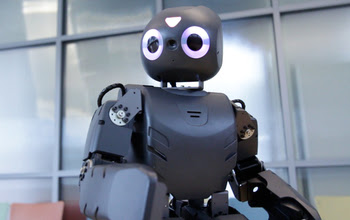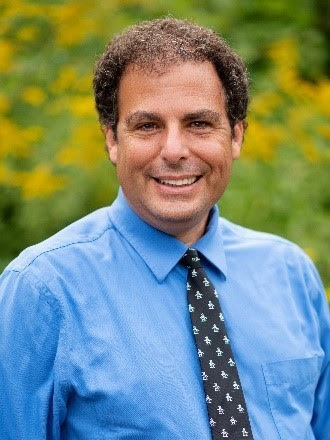| ||||||||||||||||||||||||||||||||||||||||||||||||||||||||||||||||||||||||||||||||||||||||||||||||||||||||||||||||||||||||||||||||||||||||||||||||

politikinewsaaa.blogspot.com,η Χρήσιμη Εφημερίδα,ΠΟΛΙΤΙΚΗ,POLITIKI,POLITIKI NEWSPAPER,politikinews,ΠΟΛΙΤΙΚΗ ΕΦΗΜΕΡΙΔΑ,"POLITIKI" news,news,"ΠΟΛΙΤΙΚΗ" Εφημερίδα,Ειδήσεις,Новости Греция, Nachrichten aus Griechenland, Nouvelles de la Grèce, أخبار من اليونان,, 來自希臘的消息 , ギリシャからのニュース, Новини з Греції, Notícias da Grécia, חדשות מיוון, Notizie dalla Grecia, Nyheter fra Hellas,
"ΠΟΛΙΤΙΚΗ 2000-2026"
Διαβάζετε ένα ΑΠΟΛΥΤΩΣ ΑΞΙΟΠΙΣΤΟ και ΧΩΡΙΣ ΚΑΜΙΑ ΑΠΟΛΥΤΩΣ οικονομική στήριξη (αυτοδιοικητική, χορηγική, δημοσία ή άλλη ) ηλικίας 25 ετών Μέσο Μαζικής Ενημέρωσης, με αξιοσημείωτη ΔΙΕΘΝΗ αναγνώριση και ΕΞΑΙΡΕΤΙΚΑ ΥΨΗΛΗ ΑΝΑΓΝΩΣΙΜΟΤΗΤΑ.
Είκοσι πέντε (25) ολόκληρα χρόνια δημοσιογραφίας, ΟΥΤΕ ΜΙΑ ΔΙΑΨΕΥΣΙΣ!!
Contact: politikimx@gmail.com v.ch.maria@gmail.com
Είκοσι πέντε (25) ολόκληρα χρόνια δημοσιογραφίας, ΟΥΤΕ ΜΙΑ ΔΙΑΨΕΥΣΙΣ!!
Contact: politikimx@gmail.com v.ch.maria@gmail.com
Ενδεικτική αναφορά αναγνωσιμότητος είναι:
76762 (Ioυλιος 2025..λέει η γκούγκλ)
80410 (Aύγουστος 2025..είπαμε.."λέει η γκούγκλ”)
87122 (Οκτώβριος 2025)
104589 (Νοέμβριος 2025)
95785 (Iανουάριος 2026)
76762 (Ioυλιος 2025..λέει η γκούγκλ)
80410 (Aύγουστος 2025..είπαμε.."λέει η γκούγκλ”)
87122 (Οκτώβριος 2025)
104589 (Νοέμβριος 2025)
95785 (Iανουάριος 2026)
Αναζήτηση αυτού του ιστολογίου
SELECT LANGUAGE

ΝΙΚΟΥ ΑΝΔΡΟΥΛΑΚΗ ΠΡΟΕΔΡΟΥ ΠΑ.ΣΟ.Κ. συνέντευξις
H ιστορική ομιλία του Μαρκ Κάρνεϊ που καθήλωσε στο Νταβός: «Η παλιά τάξη πραγμάτων πέθανε»
....ΑΥΤΟ!!

.....ΑΥΤΟ!!
ΓΙΑΝΝΗ και ΜΑΡΙΑΣ ΒΑΒΟΥΡΑΝΑΚΗ...ιδιότυπες Ευχές(φωτο wikipedia)

Παραμονή Πρωτοχρονιάς. Για τον καινούριο χρόνο που έρχεται, δεν έχουμε Ευχές, γιατί με αυτές δεν φτιάχνεις Ζωή. Ζωή Καλή, φτιάχνεις με ιδρώτα, χαλύβδινη ψυχή, ακάματη και σκληρή ΔΟΥΛΕΙΑ, γερή Σκέψη, ζεστή Ψυχή γεμάτη Αγάπη για τους διπλανούς σου, είτε Ανθρώπους, είτε Ζώα και κάθε είδους Πλάσματα του Θεού που κατοικούν στον Πλανήτη μαζί σου. Καλή Ζωή έχεις όταν αγαπάς την Γη, την σέβεσαι και την προστατεύεις ΟΣΟ ΜΠΟΡΕΙΣ.., οταν προστατεύεις ΟΛΑ ΤΑ ΑΔΥΝΑΜΑ ΠΛΑΣΜΑΤΑ κάθε μορφής, όταν μοιράζεσαι το φαγητό σου με τον διπλανό...όταν προσέχεις τα Παιδιά και όταν δεν προσπερνάς όποιον και ό,τι υποφέρει. Καλή Ζωή έχεις όταν ΝΟΙΑΖΕΣΑΙ. Γιατί έτσι, εισπράττεις Αγάπη, Σεβασμό, Εκτίμηση, Αποδοχή.. Μακάρι να έχετε την Υγειά Σας. Μακάρι να είναι δίπλα Σας, όσοι αγαπάτε. Μακάρι το τραπέζι Σας να είναι γεμάτο. Μακάρι να έχουμε Ειρήνη, Δικαιοσύνη, Γιατρειά… ΚΑΛΗ ΖΩΗ ΣΕ ΟΛΟΥΣ ΣΑΣ για τον χρόνο που αλλάζει και λέγεται 2026!! Γ+Μ
HELLASJOURNAL..ζεστές Γιορτινές Ευχές

Καλή και Ευτυχισμένη η Νέα Χρονιά 2026: Εγκάρδιες και Γνήσιες Πανέμορφες Ευχές από την Hellas Journal, ενωμένοι όλοι σαν μία γροθιά για την Ελλάδα και την Κύπρο μας Ευχόμαστε στις Ελληνίδες και στους Έλληνες, σε όλο τον Ελληνισμό στην Ελλάδα, στην Κύπρο, στα μήκη και τα πλάτη του κόσμου, από τον Καναδά και τις Ηνωμένες Πολιτείες μέχρι την Αυστραλία, τη Νέα Ζηλανδία, τη Νότια Αφρική, όπου ζουν και δημιουργούν, Καλή και Ευτυχισμένη Χρονιά.
AHEPA News:Happy New Year!

AHEPA News:Happy New Year!
ALUMIL: 'ΚΑΛΗ ΧΡΟΝΙΑ!!"

ALUMIL:Σας ευχόμαστε ολόψυχα το 2026 να είναι ένας χρόνος γεμάτος υγεία, αγάπη και κάθε καλό για όλους τους ανθρώπους!
Dolfi "Auguri di Buon Anno dalla Famiglia DOLFI"

Dolfi "Auguri di Buon Anno dalla Famiglia DOLFI"
ΚΙΝΗΜΑ ΣΥΝΤΑΞΙΟΥΧΩΝ:ΧΡΟΝΙΑ ΠΟΛΛΑ--ΚΑΛΗ ΧΡΟΝΙΑ!!

Το ΚΙΝΗΜΑ ΣΥΝΤΑΞΙΟΥΧΩΝ εύχεται σε όλες και όλους τους συνταξιούχους υγεία και χαρά σε σας και στις οικογένειές σας! Και βέβαια το 2026 με καλή τύχη, με καλά μυαλά και με την δράση όλων μας - εργαζόμενων, συνταξιούχων και νεολαίας - να διεκδικήσουμε και να ξαναπάρουμε τη ζωή μας πίσω! Καλή και ειρηνική χρονιά!!! με ελευθερία και ευημερία... σε όλους …
ΕΝΩΣΗ ΑΓΡΙΝΙΟΥ Ευχές

Το 2026 να σπείρουμε τη χαρά, να καλλιεργήσουμε την ελπίδα, να παράξουμε αγάπη. Από τον Α. Σ. ΕΝΩΣΗ ΑΓΡΙΝΙΟΥ, χρόνια πολλά και κάθε καλό για τη νέα χρονιά!
Greenpeace Greece:"2026: ευχές για έναν ζωντανό πλανήτη"

Greenpeace Greece:"2026: ευχές για έναν ζωντανό πλανήτη"
ΕΝΩΣΗ ΓΥΝΑΙΚΩΝ ΕΛΛΑΔΟΣ-ΠΑΡΑΡΤΗΜΑ ΑΧΑΡΝΩΝ:Ευχές

ΕΝΩΣΗ ΓΥΝΑΙΚΩΝ ΕΛΛΑΔΟΣ-ΠΑΡΑΡΤΗΜΑ ΑΧΑΡΝΩΝ:Ευχές
Ευρωπαϊκό Κέντρο Τέχνης & Έρευνας του Πολιτισμού του Ανατολικού Ρωμαϊκού Κράτους στην Ευρώπη

Ευρωπαϊκό Κέντρο Τέχνης & Έρευνας του Πολιτισμού του Ανατολικού Ρωμαϊκού Κράτους στην Ευρώπη: Ευχές
The National Herald :Christmas Greetings from All of Us at TNH

The National Herald :Christmas Greetings from All of Us at TNH
ΓΕΩΡΓΙΟΥ Θ.ΒΛΑΧΟΥ,ΒΟΥΛΕΥΤΟΥ Ν.Δ. ΑΝ. ΑΤΤΙΚΗΣ, ΘΕΡΜΕΣ ΕΥΧΕΣ

ΓΕΩΡΓΙΟΥ Θ.ΒΛΑΧΟΥ,ΒΟΥΛΕΥΤΟΥ Ν.Δ. ΑΝ. ΑΤΤΙΚΗΣ, ΘΕΡΜΕΣ ΕΥΧΕΣ
Merry Christmas, Canada, from my family to yours.

Statement by Prime Minister Carney on Christmas December 24, 2025 Ottawa, Ontario “In a fast-changing, more divided and uncertain world, the holiday season is an opportunity to slow down, reflect, and focus on what really matters. This is a season of joy for families, and I hope that you find time to rest, reconnect, and celebrate with the people you love most. For Christians, Christmas holds a special meaning. It is a time to celebrate the birth of Jesus, to rejoice in the light that he brings, and to recommit to following his example of service, forgiveness, and generosity. The holidays remind Canadians of all traditions that there can be hope after despair, that light follows darkness. Although this year has brought more than its share of challenges to our country, we have also been reminded that we are fortunate to be part of one extraordinary, generous, and caring nation. We’re strongest when we are united, when we look out for each other, and when we take care of each other. Merry Christmas, Canada, from my family to yours.”
ΚΥΡΙΑΚΟΥ ΠΙΕΡΡΑΚΑΚΗ,ΥΠΟΥΡΓΟΥ ΕΘΝΙΚΗΣ ΟΙΚΟΝΟΜΙΑΣ, ΠΡΟΕΔΡΟΥ EUROGROUP,Eυχές

ΚΥΡΙΑΚΟΥ ΠΙΕΡΡΑΚΑΚΗ,ΥΠΟΥΡΓΟΥ ΕΘΝΙΚΗΣ ΟΙΚΟΝΟΜΙΑΣ, ΠΡΟΕΔΡΟΥ EUROGROUP,Eυχές
ΑΑΔΕ Θερμές Ευχές
Χριστουγεννιάτικες Ευχές Υπουργού Ναυτιλίας & Νησιωτικής Πολιτικής

Χριστουγεννιάτικες Ευχές Υπουργού Ναυτιλίας & Νησιωτικής Πολιτικής,ΒΑΣΙΛΗ ΚΙΚΙΛΙΑ
Christmas Greetings from the President of Ireland

Beannachtaí na Nollag ó Uachtarán na hÉireann 2025 - Christmas Greetings from the President of Ireland
ΕΝΙ-ΕΟΠΥΥ Ευχές Χριστουγέννων

ΕΝΙ-ΕΟΠΥΥ Ευχές Χριστουγέννων
ΕΝΩΣΗ ΞΕΝΟΔΟΧΩΝ ΑΘΗΝΩΝ-ΑΤΤΙΚΗΣ & ΑΡΓΟΣΑΡΩΝΙΚΟΥ :Χριστουγεννιάτικες Ευχές

ΕΝΩΣΗ ΞΕΝΟΔΟΧΩΝ ΑΘΗΝΩΝ-ΑΤΤΙΚΗΣ & ΑΡΓΟΣΑΡΩΝΙΚΟΥ :Χριστουγεννιάτικες Ευχές
2026 ΕΥΧΕΣ ΟΙΚΟΓΕΝΕΙΑΣ ΚΟΥΦΟΓΕΩΡΓΟΥ ΣΩΤΗΡΗ

2026 ΕΥΧΕΣ ΟΙΚΟΓΕΝΕΙΑΣ ΚΟΥΦΟΓΕΩΡΓΟΥ ΣΩΤΗΡΗ
Buon Natale da tutti noi del team Dolfi

Buon Natale da tutti noi del team Dolfi
ΑΡΧΗ ΠΡΟΣΤΑΣΙΑΣ ΔΕΔΟΜΕΝΩΝ:Θερμές ευχές για χαρούμενες γιορτές και μια καινούργια χρονιά γεμάτη υγεία

ΑΡΧΗ ΠΡΟΣΤΑΣΙΑΣ ΔΕΔΟΜΕΝΩΝ:Θερμές ευχές για χαρούμενες γιορτές και μια καινούργια χρονιά γεμάτη υγεία και δημιουργικότητα!
Portuguese Shoes:Merry Christmas!

Happy Holidays! We wish to all our partners and clients a Merry Christmas and a Wonderfull New Year.
Καλά Χριστούγεννα από το Ε.Ε.Α.!

Καλά Χριστούγεννα από το Ε.Ε.Α.!
Delphi Economic Forum :Season’s Greetings!

Delphi Economic Forum :Season’s Greetings!
Ευχές από τον Πιερικό Οργανισμό Τουριστικής Ανάπτυξης και Προβολής

Ευχές από τον Πιερικό Οργανισμό Τουριστικής Ανάπτυξης και Προβολής
Ευχές από την Εθνική Αρχή Διαφάνειας

Ευχές από την Εθνική Αρχή Διαφάνειας
Hellasjournal.com: Καλά Χριστούγεννα με υγεία, χαρά και ευτυχία για τους όπου γης Έλληνες¨..

Το Κέντρον Ερεύνης της Ελληνικής Λαογραφίας της Ακαδημίας Αθηνών σας εύχεται καλά Χριστούγεννα και ευτυχισμένο το νέον έτος 2026!

ΓΙΟΡΤΗ ΚΑΙ ΕΥΧΕΣ ΒΑΣΙΛΗ ΟΙΚΟΝΟΜΟΥ - ΒΟΥΛΕΥΤΗ ΝΔ ΑΝΑΤ. ΑΤΤΙΚΗΣ
ΓΣΕΕ Ευχές

ΓΣΕΕ ΓΕΝΙΚΗΣ ΣΥΝΟΜΟΣΠΟΝΔΙΑΣ ΕΡΓΑΤΩΝ ΕΛΛΑΔΟΣ, θερμές Χριστουγεννιάτικες Ευχές
Ένωση Εργαζομένων Καταναλωτών Ελλάδας:θερμές Χριστουγεννιάτικες Ευχές

Ένωση Εργαζομένων Καταναλωτών Ελλάδας:θερμές Χριστουγεννιάτικες Ευχές
ΔΗΜΩΣ Ημερήσιο Γενικό Λύκειο Αχαρνών Ολόθερμες Ευχές

ΔΗΜΩΣ Ημερήσιο Γενικό Λύκειο Αχαρνών Ολόθερμες Ευχές
Hellenic Hotelier's Federation:Καλά Χριστούγεννα και Ευτυχισμένο το νέο Έτος

Καλά Χριστούγεννα και Ευτυχισμένο το νέο Έτος - Ευχές από την Πανελλήνια Ομοσπονδία Ξενοδόχων
Happy Holidays from the BSM

Happy Holidays from the BSM Wishing you and your loved ones a happy holiday season from everyone at the Bata Shoe Museum!
Περιφερειακό Παρατηρητήριο Κοινωνικής Ένταξης Περιφέρειας Κρήτης θερμές Ευχές

Περιφερειακό Παρατηρητήριο Κοινωνικής Ένταξης Περιφέρειας Κρήτης θερμές Ευχές
ΣΕΒ σύνδεσμος επιχειρήσεων και βιομηχανιών Θερμές Ευχές

ΣΕΒ σύνδεσμος επιχειρήσεων και βιομηχανιών Θερμές Ευχές
Shedia street paper:Με τις πιο ζεστές μας ευχές - σχεδία

Shedia street paper:Με τις πιο ζεστές μας ευχές - σχεδία
Καλά Χριστούγεννα & Καλή Χρονιά! ΝΤΟΡΑ ΜΠΑΚΟΓΙΑΝΝΗ

Καλά Χριστούγεννα & Καλή Χρονιά! ΝΤΟΡΑ ΜΠΑΚΟΓΙΑΝΝΗ
American Apparel & Footwear Association "Happy Holidays"!!

American Apparel & Footwear Association "Happy Holidays"!!
Ε.Ε.Φα.Μ Θερμές Ευχές

Ε.Ε.Φα.Μ Θερμές Ευχές
ILF consulting & Agora World Business Center, Eυχές

Η διοίκηση και τα στελέχη της ILF consulting και του Agora World Business Center, σας εύχονται Καλά Χριστούγεννα και Καλές Γιορτές. Ο καινούριος χρόνος να σας βρει όλους με υγεία, ελπίδα και δύναμη για μια υπέροχη δημιουργική Νέα Χρονιά . Το 2026 να μας οπλίσει με πάθος, όραμα, θέληση, ελπίδα, αλληλεγγύη και ανάπτυξη.
EUROPEAN YOUTH PRESS,best wishes!!

EUROPEAN YOUTH PRESS,best wishes!!
Παρατηρητήριο Καινοτόμου Επιχειρηματικότητας Περιφέρειας Κρήτης,Eυχές

Παρατηρητήριο Καινοτόμου Επιχειρηματικότητας Περιφέρειας Κρήτης,Θερμές Ευχές
ΙΝΣΤΙΤΟΥΤΟ ΔΗΜΟΚΡΑΤΙΑΣ ΚΩΝΣΤΑΝΤΙΝΟΣ ΚΑΡΑΜΑΝΛΗΣ:Θερμές Ευχές

ΙΝΣΤΙΤΟΥΤΟ ΔΗΜΟΚΡΑΤΙΑΣ ΚΩΝΣΤΑΝΤΙΝΟΣ ΚΑΡΑΜΑΝΛΗΣ:Θερμές Ευχές
ΚΟΙΝΩΝΙΟΛΟΓΟΥ ΚΑΙ ΠΡΟΕΔΡΟΥ ΣΥΛΛΟΓΟΥ ΚΟΙΝΩΝΙΟΛΟΓΩΝ,κ. ΕΥΑΓΓΕΛΙΑΣ ΤΣΑΠΑΤΣΑΡΗ,Ευχές

ΚΟΙΝΩΝΙΟΛΟΓΟΥ ΚΑΙ ΠΡΟΕΔΡΟΥ ΣΥΛΛΟΓΟΥ ΚΟΙΝΩΝΙΟΛΟΓΩΝ,κ. ΕΥΑΓΓΕΛΙΑΣ ΤΣΑΠΑΤΣΑΡΗ,Ευχές
Ευχές Προέδρου και Διοικητικού Συμβουλίου ΕΒΕΑ

Ευχές Προέδρου και Διοικητικού Συμβουλίου ΕΒΕΑ
Season’s greetings from the EUDA!

Season’s greetings from the EUDA! Wishing all of our readers a restful and enjoyable holiday period. We look forward to seeing you in 2026!
ΚΙΝΗΜΑ ΣΥΝΤΑΞΙΟΥΧΩΝ:Θερμές Ευχές

Το Δ.Σ του ΚΙΝΗΜΑΤΟΣ ΣΥΝΤΑΞΙΟΥΧΩΝ εύχεται ολόψυχα σε όλους τους Συνταξιούχους και στις οικογένειές σας: Καλά Χριστούγεννα ! Χαρούμενα και Ευτυχισμένα! ΚΑΙ του χρόνου να είμαστε ΄΄ολοι καλά, σοφότεροι και αγωνιστικότεροι για να γιορτάσουμε ΚΑΙ ΜΕ ΤΟ ΔΩΡΟ ΧΡΙΣΤΟΥΓΕΝΝΩΝ... αν δεν "ξαναπυροβολήσουμε" τα πόδια μας... Ας ΔΙΩΞΟΥΜΕ αυτούς που κάθε χρόνο κλέβουν τις συντάξεις μας {με το μακρύ χέρι του ληστή} …
Καλά Χριστούγεννα από το Diastixo.gr!

Καλά Χριστούγεννα από το Diastixo.gr!
ΕΛΛΗΝΙΚΗ ΑΝΤΙΚΑΡΚΙΝΙΚΗ ΕΤΑΙΡΕΙΑ ΠΑΡΑΡΤΗΜΑ ΑΧΑΡΝΩΝ & ΦΥΛΗΣ

ΕΛΛΗΝΙΚΗ ΑΝΤΙΚΑΡΚΙΝΙΚΗ ΕΤΑΙΡΕΙΑ ΑΧΑΡΝΩΝ & ΦΥΛΗΣ:Eυχές
Ετικέτες
- ΥΠΟΥΡΓΕΙΩΝ ΕΝΗΜΕΡΩΣΙΣ
- COUNCIL OF THE EUROPEAN UNION
- U.S.A's news
- ΚΟΜΜΑΤΑ
- ΚΟΙΝΩΝΙΚΑ ΘΕΜΑΤΑ
- ΒΟΥΛΕΥΤΕΣ ΕΛΛΗΝΩΝ
- ΕΠΙΧΕΙΡΗΜΑΤΙΚΗ ΕΝΗΜΕΡΩΣΗ
- ΕΛΛΗΝΙΚΗ ΚΥΒΕΡΝΗΣΗ
- ΕΘΝΙΚΑ ΘΕΜΑΤΑ
- ΕΦΗΜΕΡΙΔΕΣ
- ΑΓΡΟΤΙΚΗ ΕΝΗΜΕΡΩΣΗ
- IMF-ΔΙΕΘΝΕΣ ΝΟΜΙΣΜΑΤΙΚΟ ΤΑΜΕΙΟ
- ΕΠΙΣΤΗΜΗ - SCIENCE
- CANADA news
- ΕΠΙΜΕΛΗΤΗΡΙΑ
- ΣΥΝΔΙΚΑΛΙΣΜΟΣ
- ΑΧΑΡΝΕΣ
- ΔΗΜΟΤΙΚΑ-ΠΕΡΙΦΕΡΕΙΕΣ
- ΕΚΠΑΙΔΕΥΣΗ
- ΦΥΣΗ
- EU
- ΟΙ ΑΝΑΓΝΩΣΤΕΣ ΜΑΣ ΓΡΑΦΟΥΝ
- AHEPA
- HEALTH NEWS
- ΟΙΚΟΝΟΜΙΑ
- EUROPEAN COMMISSION
- SHOES NEWS
- NORWAY newest
- MAΡΙΑΣ ΑΝΑΡΤΗΣΕΙΣ ΣΤΑ SOCIAL MEDIA
- ΝΟΜΟΙ-ΣΧΕΔΙΑ ΝΟΜΩΝ
- RUSSIA's latest
- ΚΡΗΤΗ
- WTO
- ΝΟΜΙΚΑ ΘΕΜΑΤΑ
- ΑΔΕΛΦΟΙ ΑΠΑΝΤΑΧΟΥ ΤΗΣ ΓΗΣ
- ΥΠΟΔΗΜΑ
- KOINΩΝΙΚΑ ΘΕΜΑΤΑ
- EUROPEAN BANK
- NATO NEWS
- ΔΙΚΑΙΟΣΥΝΗ
- ΔΙΕΘΝΗ ΘΕΜΑΤΑ
- ΥΓΕΙΑ
- ΜΑΡΙΑΣ ΑΡΘΡΑ
- OBAMA's newest
- ΚΑΛΛΙΤΕΧΝΙΚΑ ΝΕΑ
- ΕΚΔΗΛΩΣΕΙΣ
- KOMMATA
- ΠΕΡΙΒΑΛΛΟΝ
- ΕΚΚΛΗΣΙΑ
- ΚΑΘΗΜΕΡΙΝΟΤΗΤΑ..ς σχόλια απο την ΜΑΡΙΑ ΧΑΤΖΗΔΑΚΗ ΒΑΒΟΥΡΑΝΑΚΗ
- ΣΥΝΕΔΡΙΑ
- ΣΥΛΛΟΓΟΙ
- EUROGROUP
- ΑΣΕΠ
- ΠΟΛΙΤΙΣΜΟΣ
- ΤΟΠΙΚΗ ΔΗΜΟΣΙΟΓΡΑΦΙΑ
- ΚΩΣΤΗΣ ΧΑΤΖΗΔΑΚΗΣ
- ΑΑΔΕ
- ΣΥΝΤΑΞΕΙΣ
- ΒΙΒΛΙΑ
- CDC
- ΠΑΝΕΠΙΣΤΗΜΙΑ
- ΤΟΥΡΙΣΜΟΣ
- ΦΟΡΟΛΟΓΙΚΑ
- NASA's Earth Observatory
- hellasjournal
- JUSTIN TRUDEAU
- ΕΥΑΓΓΕΛΟΣ ΒΕΝΙΖΕΛΟΣ
- ΔΙΑΦΟΡΑ
- ΗΜΕΡΙΔΕΣ
- ΕΦΚΑ
- WEBINAR
- CDU
- ΓΙΑΝΝΗ Γ. ΒΑΒΟΥΡΑΝΑΚΗ πολιτικοί σχολιασμοί
- ΕΒΕΑ
- ΚΑΤΑΝΑΛΩΤΙΚΑ ΘΕΜΑΤΑ
- ΜΙΧΑΗΛ ΙΓΝΑΤΙΟΥ
- ΜΟΥΣΕΙΑ
- ΟΑΕΔ
- ΕΡΓΑΤΙΚΑ ΘΕΜΑΤΑ
- ΕΡΓΑΣΙΑΚΑ ΘΕΜΑΤΑ
- ΖΩΑΚΙΑ
- ΑΗΕPA
- SPD
- WHO
- ΕΘΝΙΚΗ ΑΡΧΗ ΔΙΑΦΑΝΕΙΑΣ
- think tank
- CCBE-Council of Bars and Law Societies of Europe
- ΣτΕ
- ΑΧΑΡΝΩΝ "ΠΟΛΙΤΙΚΗ"
- LEATHER NEWS
- ΚΥΡΙΑΚΟΣ ΠΙΕΡΡΑΚΑΚΗΣ
- ΕΛΛΗΝΙΚΕΣ ΕΠΙΧΕΙΡΗΣΕΙΣ
- IGCAT
- ΕΠΙΔΟΜΑΤΑ
- ΚΩΣΤΑΣ ΛΑΜΠΟΣ Διδάκτωρ της Σχολής Οικονομικών Επιστημών του Freie Universitat BERLIN
- ΓΣΕΕ
- ΕΡΕΥΝΑ
- ΚΛΩΣΤΟΫΦΑΝΤΟΥΡΓΙΑ
- ΛΕΩΝΙΔΑΣ ΚΟΥΜΑΚΗΣ
- ΟΜΙΛΙΕΣ
- TEXTILE
- ΔΥΠΑ
- ΑΠΟΦΑΣΕΙΣ
- ΓΝΩΜΗ
- ΠΕΡΙΦΕΡΕΙΑ ΚΡΗΤΗΣ
- COVID-19
- FRANCE latest news
- ΜΕΛΕΤΕΣ
- ΤΟΠΙΚΗ ΔΗΜΟΣΙΟΓΡΑΦΙΑ ΔΗΜΟΣ ΜΑΡΚΟΠΟΥΛΟΥ
- ΔΕΡΜΑ
- ΠΕΡΙΟΔΙΚΑ
- παρατηρητηριο καινοτόμου επιχειρηματικοτητος Περιφέρειας Κρήτης
- footwear
- ΑΧΑΡΝΕΣ ΔΙΑΥΓΕΙΑ
- FAKENEWS
- ΑΣΤΥΝΟΜΙΚΟ ΔΕΛΤΙΟ
- ΕΝΥΠΕΚΚ
- ΞΕΝΟΣ ΤΥΠΟΣ
- BOARD OF GOVERNORS OF THE FERERAL RESERVE SYSTEM
- FIBRE
- SPACE
- EUFIC
- ΕΓΚΥΚΛΙΟΙ
- ΤΡΑΠΕΖΑ ΤΗΣ ΕΛΛΑΔΟΣ
- - ΕΚΔΗΛΩΣΕΙΣ
- ΕΚΔΗΛΩΣΗ
- ΑΔΕΣΠΟΤΑ ΖΩΑΚΙΑ
- ΑΣΦΑΛΙΣΤΙΚΑ ΘΕΜΑΤΑ
- ΝΙΚΟΛΑΟΣ ΔΕΝΔΙΑΣ
- ΑΘΛΗΤΙΣΜΟΣ
- ΔΗΛΩΣΕΙΣ ΠΟΛΙΤΙΚΩΝ
- QUORA
- ΕΝΗΜΕΡΩΣΗ ΑΠΑΝΤΑΧΟΥ ΚΡΗΤΩΝ
- ΜΕΤΑΝΑΣΤΕΥΣΗ
- ΧΩΡΟΤΑΞΙΑ
- ΑΡΘΡΑ
- ΑΡΧΗ ΠΡΟΣΤΑΣΙΑΣ ΔΕΔΟΜΕΝΩΝ
- ΕΥΧΕΣ
- ΣΥΝΕΝΤΕΥΞΕΙΣ
- ΒΥΡΣΟΔΕΨΙΑ
- TANNERY NEWS
- ΔΙΕΘΝΕΙΣ ΕΚΘΕΣΕΙΣ
- Drugnet Europe
- WORLD TRADE ORGANIZATION
- CEC SHOES
- ΔΗΛΩΣΕΙΣ ΕΚΔΟΤΩΝ
- ΟΠΕΚΕΠΕ
- ΣΕΒ
- ΤΗΙΝΚ ΤΑΝΚ
- european journalism center
- ΟΡΘΟΔΟΞΗ ΑΚΑΔΗΜΙΑ ΚΡΗΤΗΣ
- ΕΛΛΗΝΙΚΗ ΑΣΤΥΝΟΜΙΑ
- ΥΠΟΥΡΓΙΚΕΣ ΑΠΟΦΑΣΕΙΣ
- ΦΙΛΟΖΩΪΚΗ ΑΧΑΡΝΩΝ ΚΑΙ ΘΡΑΚΟΜΑΚΕΔΟΝΩΝ " ΜΕΡΙΜΝΑ""
- EUR-Lex
- WORLD HEALTH ORGANIZATION
- ΚΗΤΗ
- ΑΠΟΨΕΙΣ
- ΕΟΦ
- DELPHI FORUM
- ΙΟΒΕ
- ΟΙΚΙΑΚΗ ΟΙΚΟΝΟΜΙΑ
- ΠΑΠΑΣΤΡΑΤΟΣ
- APEC ASIA PACIFIC ECONOMIC COOPERATION
- ΑΝΑΚΟΙΝΩΣΕΙΣ
- ΕΣΠΑ
- EBEA
- ΓΕΩΧΩΡΙΚΑ
- ΔΗΜΟΣ ΑΧΑΡΝΩΝ
- ΔΗΜΟΣΚΟΠΙΣΕΙΣ
- ΔΙΑΒΟΥΛΕΥΣΕΙΣ
- ΕΡΕΥΝΕΣ
- ΠΑΝΑΓΙΩΤΗΣ ΓΕΡΟΓΛΗΣ
- CEC
- ΝΟΜΙΚΗ ΒΙΒΛΙΟΘΗΚΗ
- FASHION
- ΑΧΑΡΝΕΣ ΑcharnonGordiumBond
- ΕΛΕΓΚΤΙΚΟ ΣΥΝΕΔΡΙΟ
- ΕΟΠΥΥ
- ΦΩΤΕΙΝΟΙ ΔΗΜΟΤΕΣ ΑΧΑΡΝΩΝ
- ΓΕΩΡΓΙΟΣ ΦΛΩΡΑΣ
- ΕΚΘΕΣΕΙΣ
- ΕΛΛΗΝΩΝ ΠΡΟΤΥΠΑ
- ΙΑΤΡΙΚΑ ΑΡΘΡΑ
- ΠΕΡΙΦΕΡΕΙΑ ΑΤΤΙΚΗΣ
- EGCA
- OKANΑ ΟΡΓΑΝΙΣΜΟΣ ΚΑΤΑ ΤΩΝ ΝΑΡΚΩΤΙΚΩΝ
- ΑΜΕΑ
- ΕΚΘΕΣΕΙΣ ΔΙΕΘΝΕΙΣ
- ΜΙΧΑΗΛ ΧΡΥΣΟΧΟΪΔΗΣ
- ΜΟΔΑ
- ΝΙΚΟΛΑΟΣ ΜΕΣΟΓΑΙΑΣ
- Παρατηρητήριο Κοινωνικής Ένταξης Περιφέρειας Κρήτης
- ΣΥΝΗΓΟΡΟΣ ΤΟΥ ΠΟΛΙΤΗ
- AGRICULTURE AND RURAL DEVELOPMENT
- AMEA
- EKETA
- EΛΛΗΝΙΚΕΣ ΕΠΙΧΕΙΡΗΣΕΙΣ
- U.S. Department of State Weekly Digest Bulletin
- ema european medicines agency
- ΕΛΛΗΝΕΣ ΣΟΦΟΙ
- ΕΥΡΩΠΑΪΚΗ ΕΙΣΑΓΓΕΛΙΑ
- ΕΥΡΩΠΑΪΚΟ ΔΙΚΑΣΤΗΡΙΟ:ΑΠΟΦΑΣΕΙΣ
- ΙΑΤΡΙΚΗ ΣΧΟΛΗ ΑΘΗΝΩΝ
- ΙΗΑ
- ΛΕΣΧΗ ΣΥΖΗΤΗΣΕΩΝ ΔΗΜΟΤΩΝ ΑΧΑΡΝΩΝ
- ΟΦΥΠΕΚΑ
- AXAΡΝΕΣ
- IHA
- IRELAND news
- PODCASTS
- TTB Alcohol and Tobacco Tax and Trade Bureau
- ΓΝΩΜΟΔΟΤΗΣΕΙΣ
- ΔΗΜΟΣ ΧΑΝΙΩΝ
- ΕUROGROUP
- ΕΔΑΣΑ
- ΚΑΛΛΙΣΤΩ
- ΠΟΜΙΔΑ
- EUROSTAT
- EΘΝΙΚΗ ΑΡΧΗ ΔΙΑΦΑΝΕΙΑΣ
- OLAF EYΡΩΠΑΪΚΗ ΥΠΗΡΕΣΙΑ ΚΑΤΑΠΟΛΕΜΗΣΗΣ ΤΗΣ ΑΠΑΤΗΣ
- RASFF
- SKIN NEWS
- YΠΟΔΗΜΑ
- ΑΓΩΝΙΖΟΜΕΝΟΙ ΕΝΤΙΜΟΙ ΚΑΤΆ ΤΗΣ ΤΟΠΙΚΗΣ ΑΥΤΟΔΙΟΙΚΗΤΙΚΗΣ ΔΙΑΠΛΟΚΗΣ ΑΧΑΡΝΩΝ
- ΑΥΘΑΙΡΕΤΑ
- ΒΙΟΗΘΙΚΗ
- ΒΟΥΛΕΥΜΑΤΑ
- ΓΛΥΠΤΑ ΤΟΥ ΠΑΡΘΕΝΩΝΑ
- ΔΙΚΑΣΤΗΡΙΟ ΤΗΣ ΕΥΡΩΠΑΪΚΗΣ ΕΝΩΣΗΣ
- ΔΙΚΗΓΟΡΙΚΟΣ ΣΥΛΛΟΓΟΣ ΑΘΗΝΩΝ
- ΕΛΣΤΑΤ ΕΛΛΗΝΙΚΗ ΣΤΑΤΙΣΤΙΚΗ ΑΡΧΗ
- ΕΟΠΑΕ
- ΕΥΡΩΠΗ
- ΕΦΕΤ
- ΗΛΕΚΤΡΟΝΙΚΗ ΔΙΑΚΥΒΕΡΝΗΣΗ
- ΙΔΡΥΜΑ ΕΥΓΕΝΙΔΟΥ
- ΜΑΓΕΙΡΙΚΗ
- ΜΕΛΙΣΣΑ
- ΝASA
- ΝΟΜΟΛΟΓΙΑ
- ΠΑΝΕΛΛΗΝΙΟΣ ΙΑΤΡΙΚΟΣ ΣΥΛΛΟΓΟΣ
- ΠΡΟΤΑΣΕΙΣ "ΠΟΛΙΤΙΚΗ 2000-2025 ΓΙΑ ΤΗΝ ΒΕΛΤΙΩΣΗ ΔΗΜΟΥ ΑΧΑΡΝΩΝ
- ΤΟ ΠΑΡΕΛΘΟΝ ΥΠΕΝΘΥΜΙΖΕΙ ΣΤΟΥΣ ΔΗΜΟΤΕΣ ΑΧΑΡΝΩΝ
- ΤΣΕΛΕΝΤΗΣ ΑΚΗΣ
"ΠΑΡΑΠΟΝΟ ΦΥΛΗΣ" ΠΟΛΥΕΤΗΣ ΗΛΕΚΤΡΟΝΙΚΟΣ ΙΣΤΟΧΩΡΟΣ ΕΙΔΗΣΕΩΝ
"ΔΙΚΑΙΟΣΥΝΗ για τον μικρό μας Αγγελο,ΜΑΡΙΟ ΣΟΥΛΟΥΚΟ"
"ΠΟΛΙΤΙΚΗ" προηγούμενη ηλεκτρονική έκδοση
ΕΘΝΙΚΟ ΚΕΝΤΡΟ ΠΑΡΑΣΚΕΥΗΣ ΠΑΡΑΓΩΓΩΝ ΑΙΜΑΤΟΣ "ΗΛΙΑΣ ΠΟΛΙΤΗΣ"

Ερευνα,Συνεντεύξεις και επισήμανση της σπουδαιότητος του τότε ΕΘΝΙΚΟΥ ΚΕΝΤΡΟΥ ΠΑΡΑΣΚΕΥΗΣ ΠΑΡΑΓΩΓΩΝ ΑΙΜΑΤΟΣ "ΗΛΙΑΣ ΠΟΛΙΤΗΣ" απο το Περιοδικό "ΑΧΑΡΝΕΩΝ Εργα" το έτος 2004!!
Ο Ιστοχώρος μας ΔΕΝ ΛΟΓΟΚΡΙΝΕΙ τα κείμενα των Αρθρογράφων του. Αυτά δημοσιεύονται εκφράζοντας τους ιδίους.
Απαγορεύεται η αναδημοσίευση, αναπαραγωγή, ολική, μερική ή περιληπτική ή κατά παράφραση ή διασκευή ή απόδοση του περιεχομένου του παρόντος διαδικτυακού τόπου σε ό,τι αφορά τα άρθρα της ΜΑΡΙΑΣ ΧΑΤΖΗΔΑΚΗ ΒΑΒΟΥΡΑΝΑΚΗ και του ΓΙΑΝΝΗ Γ. ΒΑΒΟΥΡΑΝΑΚΗ με οποιονδήποτε τρόπο, ηλεκτρονικό, μηχανικό, φωτοτυπικό ή άλλο, χωρίς την προηγούμενη γραπτή άδεια των Αρθρογράφων. Νόμος 2121/1993 - Νόμος 3057/2002, ο οποίος ενσωμάτωσε την οδηγία 2001/29 του Ευρωπαϊκού Κοινοβουλίου και κανόνες Διεθνούς Δικαίου που ισχύουν στην Ελλάδα.
Tι ήταν η ΕΦΗΜΕΡΙΔΑ «ΠΟΛΙΤΙΚΗ»..για όσους δεν γνωρίζουν.
Η «ΠΟΛΙΤΙΚΗ» γεννήθηκε το 2000,ως συνέχεια του Περιοδικού «ΑΧΑΡΝΕΩΝ Έργα». Δημιουργήθηκε από Επαγγελματίες Εκδότες με δεκαετίες στον τομέα της Διαφήμισης, των Εκδόσεων και των Δημοσίων Σχέσεων και αρχικά ήταν μια Υπερτοπική Εφημερίδα με κύριο αντικείμενο το Αυτοδιοικητικό Ρεπορτάζ.
Επί χρόνια, κυκλοφορούσε την έντυπη έκδοσή της σε ένα ικανότατο τιράζ (5000 καλαίσθητων φύλλων εβδομαδιαίως) και εντυπωσίαζε με την ποιότητα της εμφάνισης και το ουσιώδες, μαχητικό και έντιμο περιεχόμενο της.
Η δύναμη της Πένας της Εφημερίδας, η Ειλικρίνεια, οι Ερευνές της που έφερναν πάντα ουσιαστικό αποτέλεσμα ενημέρωσης, την έφεραν πολύ γρήγορα πρώτη στην προτίμηση των αναγνωστών και γρήγορα εξελίχθηκε σε Εφημερίδα Γνώμης και όχι μόνον για την Περιφέρεια στην οποία κυκλοφορούσε.
=Επι είκοσι τέσσαρα (24) χρόνια, στηρίζει τον Απόδημο Ελληνισμό, χωρίς καμία-ούτε την παραμικρή- διακοπή
. =Επί είκοσι τέσσαρα ολόκληρα χρόνια, προβάλλει με αίσθηση καθήκοντος κάθε ξεχωριστό, έντιμο και υπεύθυνο Πολιτικό της Πολιτικής Σκηνής. Στις σελίδες της, θα βρείτε ακόμα και σήμερα μόνο άξιες και χρήσιμες Πολιτικές Προσωπικότητες αλλά και ενημέρωση από κάθε Κόμμα της Ελληνικής Βουλής. Η «ΠΟΛΙΤΙΚΗ» ουδέποτε διαχώρησε τους αναγνώστες της ανάλογα με τα πολιτικά τους πιστεύω. Επραττε το καθήκον της, ενημερώνοντας όλους τους Ελληνες, ως όφειλε.
=Επί είκοσι τέσσαρα ολόκληρα χρόνια, δίνει βήμα στους αδέσμευτους, τους επιτυχημένους, τους γνώστες και θιασώτες της Αλήθειας. Στηρίζει τον Θεσμό της Ελληνικής Οικογένειας, την Παιδεία, την Ελληνική Ιστορία, προβάλλει με όλες της τις δυνάμεις τους Αδελφούς μας απανταχού της Γης, ενημερώνει για τα επιτεύγματα της Επιστήμης, της Επιχειρηματικότητας και πολλά άλλα που πολύ καλά γνωρίζουν οι Αναγνώστες της.
=Επί είκοσι τέσσαρα ολόκληρα χρόνια, ο απλός δημότης–πολίτης, φιλοξενείται στις σελίδες της με μόνη προϋπόθεση την ειλικρινή και αντικειμενική γραφή και την ελεύθερη Γνώμη, η οποία ΟΥΔΕΠΟΤΕ λογοκρίθηκε.
Η ΕΦΗΜΕΡΙΔΑ «ΠΟΛΙΤΙΚΗ», είναι ένα βήμα Ισονομίας και Ισοπολιτείας, έννοιες απόλυτα επιθυμητές, ιδιαιτέρως στις ημέρες μας. Είναι ο δικτυακός τόπος της έκφρασης του πολίτη και της εποικοδομητικής κριτικής, μακριά από κάθε στήριξη αφού δεν ετύγχανε οικονομικής υποστήριξης από Δήμους, Κυβερνήσεις ή όποιους άλλους Δημόσιους ή Ιδιωτικούς Φορείς, δεν είχε ΠΟΤΕ χορηγούς, ή οποιασδήποτε μορφής υποστηρικτές. Απολαμβάνει όμως Διεθνούς σεβασμού αφού φιλοξενεί ενημέρωση από αρκετά ξένα Κράτη πράγμα που της περιποιεί βεβαίως, μέγιστη τιμή.
Η ΕΦΗΜΕΡΙΔΑ «ΠΟΛΙΤΙΚΗ» διαγράφει απο την γέννησή της μια αξιοζήλευτη πορεία και απέκτησε εξ αιτίας αυτού,ΜΕΓΙΣΤΗ αναγνωσιμότητα. Η Εφημερίδα «ΠΟΛΙΤΙΚΗ» κέρδισε την αποδοχή και τον σεβασμό που της ανήκει, με «εξετάσεις» εικοσι τεσσάρων ολόκληρων ετών, με συνεχείς αιματηρούς αγώνες κατά της τοπικής διαπλοκής, με αγώνα επιβίωσης σε πολύ δύσκολους καιρούς, με Εντιμότητα, αίσθηση Καθήκοντος και Ευθύνης.
Επί χρόνια, κυκλοφορούσε την έντυπη έκδοσή της σε ένα ικανότατο τιράζ (5000 καλαίσθητων φύλλων εβδομαδιαίως) και εντυπωσίαζε με την ποιότητα της εμφάνισης και το ουσιώδες, μαχητικό και έντιμο περιεχόμενο της.
Η δύναμη της Πένας της Εφημερίδας, η Ειλικρίνεια, οι Ερευνές της που έφερναν πάντα ουσιαστικό αποτέλεσμα ενημέρωσης, την έφεραν πολύ γρήγορα πρώτη στην προτίμηση των αναγνωστών και γρήγορα εξελίχθηκε σε Εφημερίδα Γνώμης και όχι μόνον για την Περιφέρεια στην οποία κυκλοφορούσε.
=Επι είκοσι τέσσαρα (24) χρόνια, στηρίζει τον Απόδημο Ελληνισμό, χωρίς καμία-ούτε την παραμικρή- διακοπή
. =Επί είκοσι τέσσαρα ολόκληρα χρόνια, προβάλλει με αίσθηση καθήκοντος κάθε ξεχωριστό, έντιμο και υπεύθυνο Πολιτικό της Πολιτικής Σκηνής. Στις σελίδες της, θα βρείτε ακόμα και σήμερα μόνο άξιες και χρήσιμες Πολιτικές Προσωπικότητες αλλά και ενημέρωση από κάθε Κόμμα της Ελληνικής Βουλής. Η «ΠΟΛΙΤΙΚΗ» ουδέποτε διαχώρησε τους αναγνώστες της ανάλογα με τα πολιτικά τους πιστεύω. Επραττε το καθήκον της, ενημερώνοντας όλους τους Ελληνες, ως όφειλε.
=Επί είκοσι τέσσαρα ολόκληρα χρόνια, δίνει βήμα στους αδέσμευτους, τους επιτυχημένους, τους γνώστες και θιασώτες της Αλήθειας. Στηρίζει τον Θεσμό της Ελληνικής Οικογένειας, την Παιδεία, την Ελληνική Ιστορία, προβάλλει με όλες της τις δυνάμεις τους Αδελφούς μας απανταχού της Γης, ενημερώνει για τα επιτεύγματα της Επιστήμης, της Επιχειρηματικότητας και πολλά άλλα που πολύ καλά γνωρίζουν οι Αναγνώστες της.
=Επί είκοσι τέσσαρα ολόκληρα χρόνια, ο απλός δημότης–πολίτης, φιλοξενείται στις σελίδες της με μόνη προϋπόθεση την ειλικρινή και αντικειμενική γραφή και την ελεύθερη Γνώμη, η οποία ΟΥΔΕΠΟΤΕ λογοκρίθηκε.
Η ΕΦΗΜΕΡΙΔΑ «ΠΟΛΙΤΙΚΗ», είναι ένα βήμα Ισονομίας και Ισοπολιτείας, έννοιες απόλυτα επιθυμητές, ιδιαιτέρως στις ημέρες μας. Είναι ο δικτυακός τόπος της έκφρασης του πολίτη και της εποικοδομητικής κριτικής, μακριά από κάθε στήριξη αφού δεν ετύγχανε οικονομικής υποστήριξης από Δήμους, Κυβερνήσεις ή όποιους άλλους Δημόσιους ή Ιδιωτικούς Φορείς, δεν είχε ΠΟΤΕ χορηγούς, ή οποιασδήποτε μορφής υποστηρικτές. Απολαμβάνει όμως Διεθνούς σεβασμού αφού φιλοξενεί ενημέρωση από αρκετά ξένα Κράτη πράγμα που της περιποιεί βεβαίως, μέγιστη τιμή.
Η ΕΦΗΜΕΡΙΔΑ «ΠΟΛΙΤΙΚΗ» διαγράφει απο την γέννησή της μια αξιοζήλευτη πορεία και απέκτησε εξ αιτίας αυτού,ΜΕΓΙΣΤΗ αναγνωσιμότητα. Η Εφημερίδα «ΠΟΛΙΤΙΚΗ» κέρδισε την αποδοχή και τον σεβασμό που της ανήκει, με «εξετάσεις» εικοσι τεσσάρων ολόκληρων ετών, με συνεχείς αιματηρούς αγώνες κατά της τοπικής διαπλοκής, με αγώνα επιβίωσης σε πολύ δύσκολους καιρούς, με Εντιμότητα, αίσθηση Καθήκοντος και Ευθύνης.
ΕΙΚΟΣΙ ΠΕΝΤΕ ΟΛΟΚΛΗΡΑ ΧΡΟΝΙΑ "ΠΟΛΙΤΙΚΗ"!! 2000-2025
Οι αρθρογράφοι των οποίων τα άρθρα δημοσιεύονται ώδε ΔΕΝ ΛΟΓΟΚΡΙΝΟΝΤΑΙ επ ουδενί.
Οι αρθρογράφοι των οποίων τα άρθρα δημοσιεύονται ώδε ΔΕΝ ΛΟΓΟΚΡΙΝΟΝΤΑΙ επ ουδενί.
Οι απόψεις τους αφορούν τους ιδίους και όχι απαραίτητα την θέση και άποψη της Εφημερίδας.









